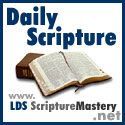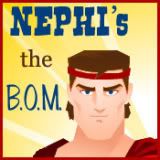

Now I See
From Music and The Spoken Word
Delivered By: Lloyd D. Newell • Program 4107
Life is a great teacher. The longer we live, the more we realize how much we’ve yet to learn. Perhaps that’s why so many memorial services include renditions of John Newton’s beloved song “Amazing Grace.” The words reverberate in our souls: “I once . . . was blind and now I see.”
Hasn’t life taught us all, at some time, that we were wrong? Who, through life experience and the process of maturity, hasn’t had his or her eyes opened?
This happened quite literally to one little girl who insisted that she did not need glasses. “I can see!” she protested. And she could, but not as well as she would when fitted with her first pair of glasses. Slowly, carefully, she rested the glasses on her nose and opened her eyes to a whole new world. She saw details she’d never seen before: the veins on leaves, the pockmarks in brick, the pointed grass blades that before were blurred. Now that she could truly see, she rejoiced in her newfound vision!
And so can we. Instead of resisting life’s lessons, we can begin to see with new eyes. John Newton knew what it was like to be once blind. Early in his career, he was a slave trader; later he became a clergyman and eventually an influential abolitionist who regretted his spiritual blindness of days past. Even though it took years for Newton to see things correctly, he resolved to help others recognize such blindness of heart. He wrote, “We think we know a great deal, because we are ignorant of what remains to be learnt.”1
1 In William E. Phipps, Amazing Grace in John Newton: Slave-Ship Captain, Hymnwriter, and Abolitionist (2001), 209









No comments:
Post a Comment